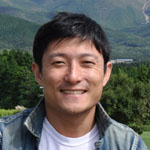IGAC Relevant
-Africa Clean Air Forum
The Africa Clean Air Forum is the flagship event of the Africa Clean Air Network (AfriCAN). It serves as a platform to convene policymakers, academia, industry, media and civil society organisations to foster knowledge sharing, collaboration, and cross-border partnerships to address air pollution across Africa.
The 2026 Forum will be held under the theme “investment case for clean air and healthy cities” and seeks to achieve the following goals:
IGAC Sponsored
-iCACGP-IGAC 2026 Conference
Atmospheric Chemistry within the Earth System: Understanding changes and impacts
Abstracts DUE 27 February 2026
For more information, see here
IGAC Sponsored
-IGAC Early Career Short Course
2026 IGAC EC-SC Application
The IGAC Early Career Short Course (EC-SC) will take place 4-6 September 2026. The EC-SC is a small group learning and network building intensive course designed by an international committee of early career scientists, overseen by the IGAC SSC.
Early career scientists as defined by IGAC for this purpose are currently enrolled Masters and PhD students and researchers within 3 years of graduation from a Masters or PhD program.
IGAC Relevant
-International Aerosol Conference
Main Topics
1. Atmospheric Aerosol and Pollution
2. Aerosol Measurement Technology
3. Fundamentals of Aerosol Physics
4. Aerosols and Health
5. Aerosol Control Technology
6. Special Topic
IGAC Relevant
-IAF Global Space Conference on Climate Change
GLOC 2026 with the theme “Uniting Space and Earth for Climate Resilience” will be addressing various topics of interest in relation to space and climate change with a specific focus on:
IGAC Relevant
-Air Sensor International Conference (ASIC) 2026
The Air Sensors International Conference, organized by the UC Davis Air Quality Research Center, ASIC Conferences are the leading global forum for experts tackling air quality, climate change, and environmental sustainability. Our events bring together top scientists, policymakers, and industry leaders to explore cutting-edge air sensor technologies, real-world applications, and data-driven solutions that improve public health and environmental justice.
IGAC Relevant
-European Geophysical Union (EGU) Spring 2026 Meeting
Look out for a session by Allin Wayra! Members of the Allin-Wayra SC have co-organized a session on 'Low-cost air quality sensors: challenges, opportunities, and collaborative strategies across the world' that is co-sponsored by iCACGP/IGAC, EPIC and WMO. In addition, a Splinter Meeting, will be organized. More information on that to follow!


